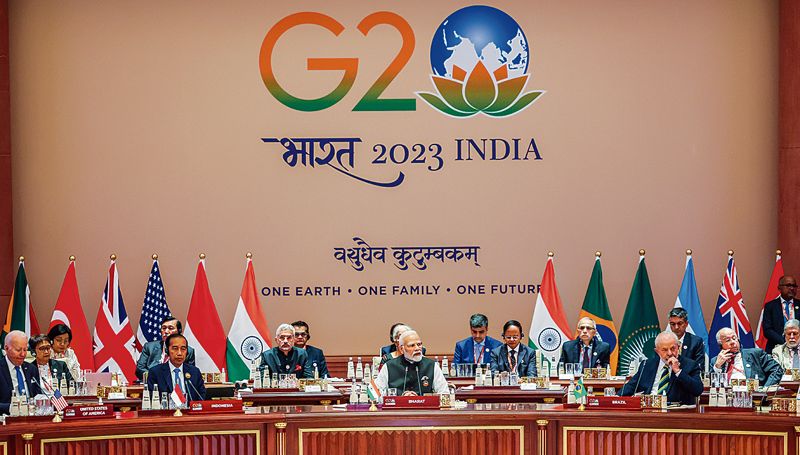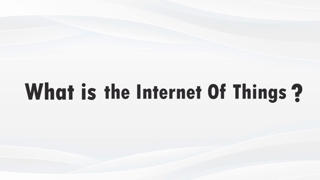India ticks most of the G20 boxes
- October 3, 2023
- Posted by: admin
- Categories: G20, India

New Delhi has done well to make the grouping responsive to global concerns


Gurjit Singh
Former Ambassador
INDIA’S G20 presidency is being widely lauded for avoiding the big power rivalry, enhancing space for emerging markets and giving a bigger place in the sun to the developing countries. Showing empathy and courage, Indian diplomacy perhaps had its finest hour over the weekend.
The G7, Russia and China had to pull back as undermining the success of India’s G20 presidency would have backfired on them.
The G20 summit in New Delhi was historic and unique. It was not as big as the Non-Aligned Movement and Commonwealth summits hosted by India in 1983. However, it was the biggest gathering in India of the world’s most powerful nations. What was especially noticeable was that India handled the entire event with aplomb.




The host nation promoted its presidency theme of Vasudhaiva Kutumbakam or ‘One Earth, One Family, One Future’ to make the G20 more inclusive than ever before.
India involved countries of the Global South in a consultative process and then invited nine guest nations, mostly from the developing world; it pursued an agenda which addressed the real developmental problems of the world. This was not a summit where India was trying to score points over rivals but an event where it was trying to repair the multilateral system, restore its vitality and make it responsive to the requirements of the world’s people.
For this, India had to work hard to prevent the rivalry of the western countries with Russia and China from derailing the process and making the G20 as ineffectual as the UN Security Council has become. Therefore, an alliance of the countries of the South within the G20 was initiated. This cohort ultimately brought the power of the Global South to bear upon the recalcitrant members of the G20.
India tried to rebalance the G20 by bringing in the largest regional organisation, the African Union (AU), which represents 55 countries. Africa has been an invitee at the G20, but no previous president risked making changes in the group’s membership. India did this successfully. In fact, even before the G20 proceedings began, India announced a consensus on the admission of the AU as a permanent member of the G20. Comoros President Azali Assoumani, the current AU chair, was invited to take a seat at the high table.
This was an unforgettable moment for Africa as well as India in their long history of ‘Harambee’ cooperative relations. As a former Ambassador to the AU, I was delighted.
India also showed courage in navigating the Leaders’ Declaration. Since there was no consensus at every ministerial meeting held under the G20 this year, it was widely assumed that there would be the chairman’s summary instead of a common statement. This was the model followed at most G20 meetings in India this year. This was a good tactic. No diplomatic capital was expended in banging one’s head on consensual language at various meetings, and it was left to the final Sherpas’ meeting before the summit, where a consensus was hammered out.
The western countries, Russia and China had serious red lines over the Ukraine issue. India was determined that since the Bali consensus no longer prevailed, a new consensus would have to be built. Indian diplomacy rose to the occasion as it brought a fractious world together to agree to focus on what really mattered.
The cohort of four successive chairpersons from the Global South — Indonesia, India, Brazil and South Africa — provided a critical mass for pushing forward a consensus document, which then was supported by Turkey, Saudi Arabia, Mexico and others.
Interestingly, while the Ukraine paragraphs do not criticise Russia directly, they do mention the UN resolutions regarding Russia, the Bali consensus and the various transgressions in Ukraine. Without naming Russia, what India managed to do was hold other nations responsible for acts of territorial aggrandisement. This applied to China’s cartographic and other forms of aggression against its neighbours, and also to other conflicts currently underway. Therefore, it was a victory of India’s position on the Ukraine crisis.
The G7, Russia and China had to pull back as undermining the success of India’s G20 presidency would have backfired on them. Once this was done, there was no looking back as on all developmental aspects and initiatives, a consensus already existed due to the hard work of various G20 groups,
India has looked to give the G20 a direction which will make it responsive to what the world and the Global South particularly need. It wants that promises which are made should be fulfilled and there should be no swapping of unfulfilled promises. Just as the Multilateral Development Banks are responsible for debt stress, China cannot escape its responsibilities.
The same applies to resilient supply chains, Sustainable Development Goals, climate finance and overall improvement through digital public infrastructure, public health, security and many other initiatives which will make the world a better, greener and resilient place.
One important thing is that India rose above simple nation-state issues and aimed to make the G20 responsive to global concerns in a cooperative and harmonious manner. India’s consensus-building skills are being welcomed in a discord-ridden world. India perhaps surprised many by being able to pull off a consensus at the Bharat Mandapam, which many people did not expect. Least of all, analysts did not expect that it would happen on the very first day of the summit. This meant that all the negotiators could enjoy the dinner hosted by President Murmu with a relaxed mind rather than keep negotiating on the sidelines.
As the summit ended amid a drizzle in Delhi, various countries knew that they had stuck together and could go home brimming with hope.
